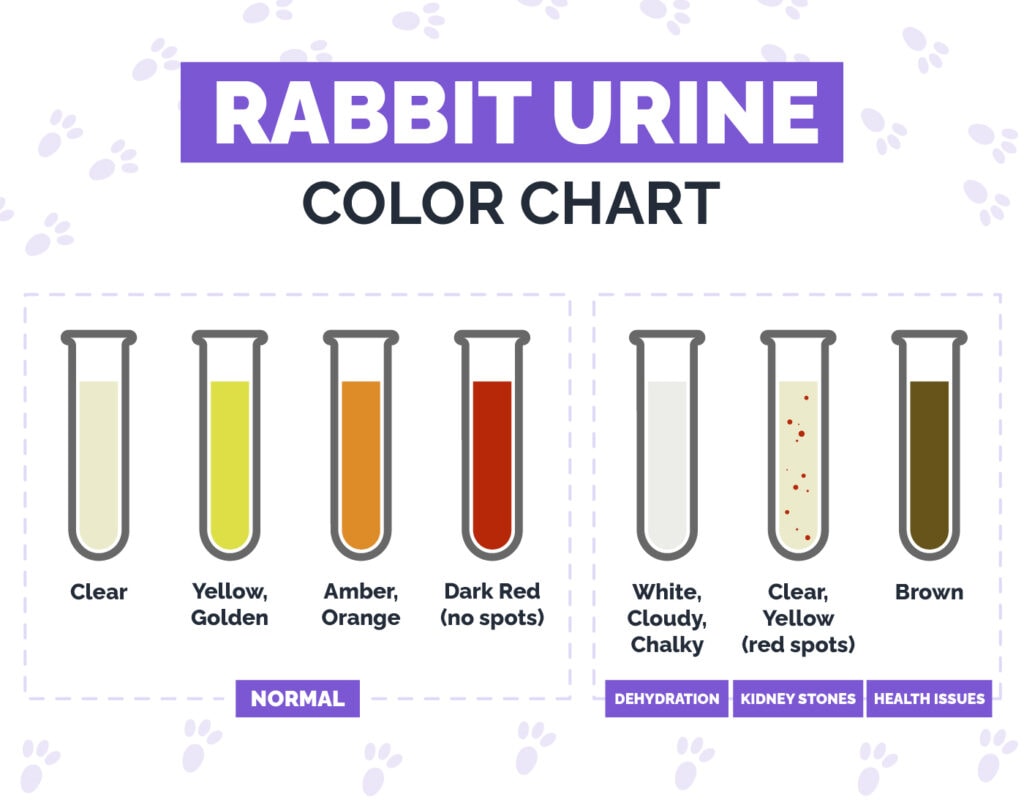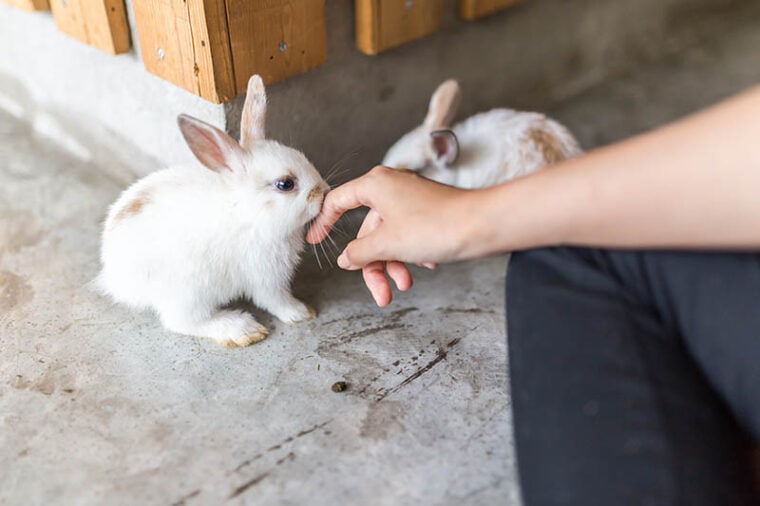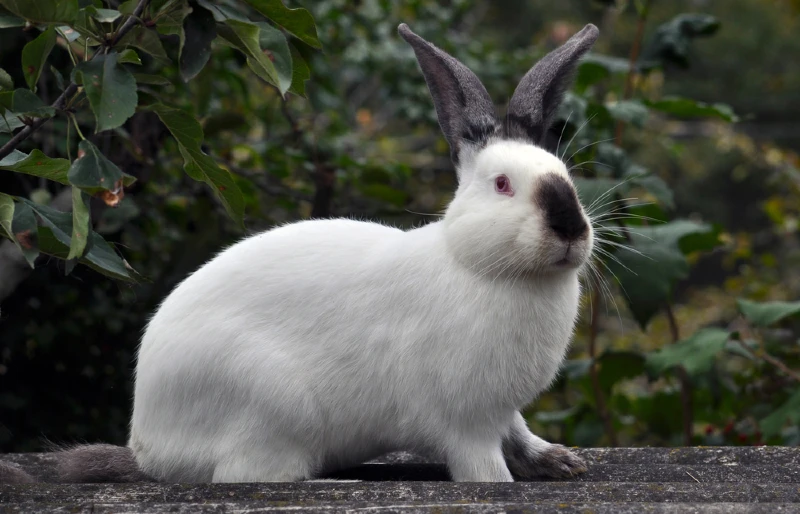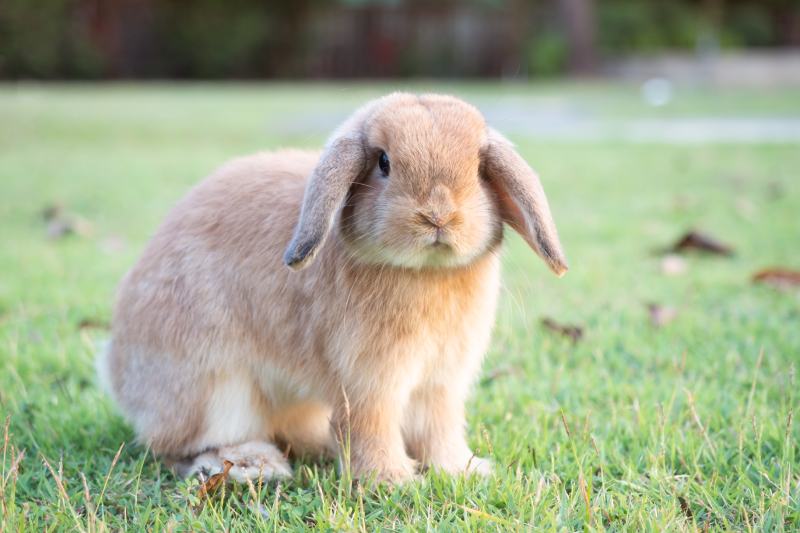Rabbit Urine Color Guide: Vet-Approved Causes & Recommendations
Updated on
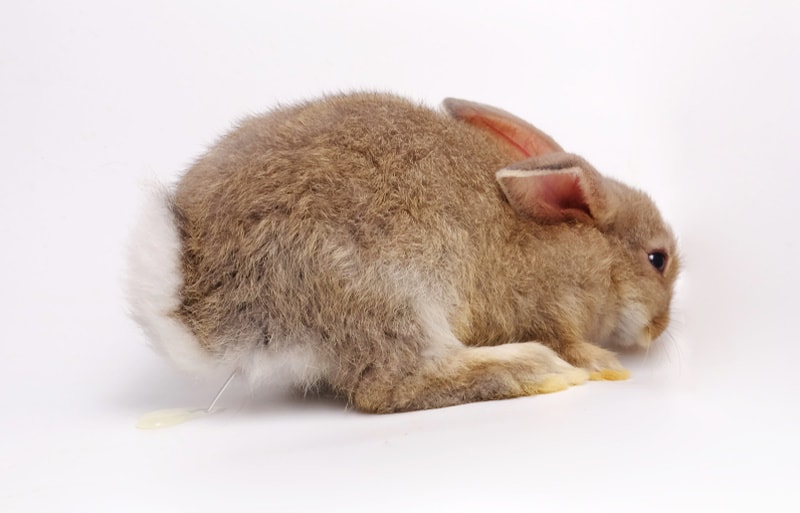
Owning a pet rabbit means knowing as much about its health and needs as possible. One factor that’s important to know is what the color of your rabbit’s urine means about its health. A rabbit’s urine can range from pale yellow to dark, rust-colored red, and several others in between, and they all mean something different.
Urine color is affected by several factors, including diet and, most importantly, water consumption. One thing to remember, however, is that normal urine is always watery. No matter the color, if your rabbit’s urine is anything but watery, it’s a sign something isn’t right. The color guide below will remove the mystery of your rabbit’s multi-colored urine.
| Urine Color | Indication | Vet Visit Needed? |
| CLEAR | Normal | No |
| YELLOW or GOLDEN | Normal | No |
| AMBER or ORANGE | Normal with possible slight dehydration | No |
| DARK RED (NO SPOTS) | Normal. Possible causes: Food, cold, antibiotics | No |
| BROWN | Normal with Possible Slight Dehydration. Sludgy brown, however, could mean calciuria | Possibly |
| WHITE, CLOUDY, or CHALKY | Normal (Possible Kidney Stones if it happens all the time.) | Possibly |
| CLEAR or YELLOW with RED SPOTS | Not Normal. Possible signs of trauma, kidney stones, polyps, and other health issues | Yes |
Rbbit Urine Colors
1. Clear or Very Little Color
If your rabbit’s urine is clear or almost colorless, it typically means that they’re healthy, well hydrated, and everything is fine. However, clear urine could also indicate that your rabbit drinks too much water. In some cases, drinking excessive water can be a sign that your rabbit has kidney problems.
2. Yellow or Golden
Yellow is also considered a normal color. That includes bright yellow, golden yellow, or dull yellow. Most rabbits with this color pee are 100% healthy because they eat a nutritious diet and drink enough water.
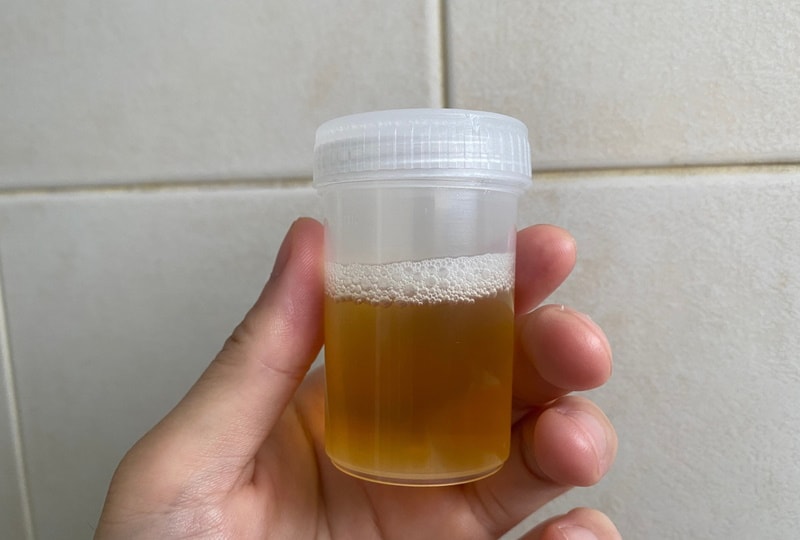
3. Amber or Light Orange
While amber urine is still considered normal, it could also indicate that your rabbit isn’t drinking enough water and is slightly dehydrated. If you see amber or orange urine in your rabbit’s potty area, giving them more water and ensuring they always have enough to drink is recommended.
4. Dark Red (No spots)
Surprisingly, dark red urine still falls under the “normal” category for rabbits, as long as it’s a uniform red color and isn’t red because of red spots. Dark red urine is usually caused by something your rabbit ate, including red cabbage, dandelions, carrots, parsley, fir leaves, and broccoli. Those veggies have natural colorings called porphyrins that pass through your rabbit’s digestive system and kidneys and come out in their urine.
You should note that red urine can also be caused if your rabbit has been sick and is being treated with antibiotics. Lastly, severe cold weather can also cause a rabbit to urinate red pee.

5. Brown
If your bunny is urinating brown pee, chances are it’s severely dehydrated and may need veterinary help to survive. However, some veterinarians believe brown urine is a sign of slight dehydration and is not life-threatening.
If your rabbit suddenly starts urinating sludgy brown pee, it could be a sign it has calciuria. This arises when a rabbit gets too much calcium in its diet. If you see sludgy, brown urine, take your bunny to the veterinarian.
6. White, Cloudy, or Chalky
Like all mammals, rabbits need calcium to survive and have a healthy life. However, if your rabbit gets too much calcium, it will show in its urine. When your bunny does this, its pee will look chalky white or cloudy.
If this occasionally happens with no other signs, everything is probably fine. However, it could be a sign that your rabbit has a health issue, such as kidney stones.

7. Clear or Yellow with Red Spots
Although rare, a rabbit with haematuria (bloody urine) suffers from kidney stones, polyps, cystitis, or cancerous growths. Trauma can also cause red spots to appear, so if your rabbit has had a recent accident, a visit to your vet is a good idea so it can be checked for internal injuries.
One cause of red spots in a rabbit’s urine can be if a female, unspayed rabbit’s blood from her vulva mixes with her pee. Vets refer to this as pseudo hematuria because it looks like, but isn’t genuine, haematuria.
How To Ensure Your Rabbit Drinks Enough Water
Some of the urine colors you’ll see when you own a rabbit are caused by dehydration, which is when your rabbit isn’t drinking or getting enough water in its diet. To ensure your rabbit drinks plenty of H2O, use the following tips:
- Refresh Your Rabbit’s Water Several Times Daily: Cool, fresh water is more enticing for most rabbits than stale, warm water.
- Get a Water Fountain for Your Rabbit: Like cats, rabbits seem to prefer drinking water when it’s flowing or running constantly. A bunny-sized water fountain can thus be very helpful in prompting them to drink more water.
- Use a Bowl Instead of a Water Bottle: It’s easier for a rabbit to drink water from a bowl than using a water bottle.
- Add Juice to Your Rabbit’s Water-:Unsweetened carrot or apple juice adds a little flavor to your rabbit’s water and makes it more palatable. This will often encourage your bunny to drink more.
- Give Your Rabbit More Green, Leafy Veggies: Vegetables like cabbage, kale, broccoli, parsley, and mint all contain moisture.
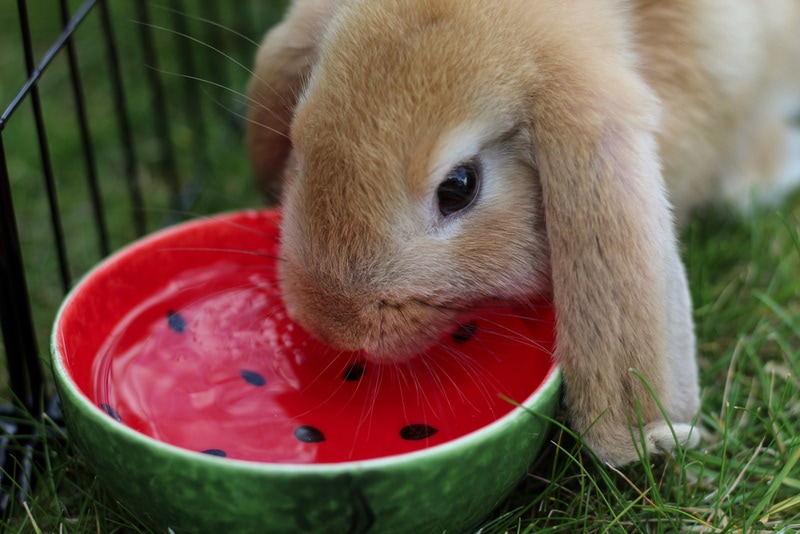
What Can Cause UTIs in Rabbits?
If your rabbit has a urinary tract infection (UTI), it can also have issues with its urine and intense pain, inflammation, and other side effects.
- Your rabbit is getting too much calcium in its diet
- Your bunny is obese
- Stress is affecting your rabbit
- Your rabbit’s living space is dirty
- Bladder stones are making it difficult for your rabbit to urinate
Final Thoughts
The urine color can change dramatically in rabbits. Sometimes, the treats you feed your rabbit can affect its urine color. However, most colors are relatively normal and indicate a rabbit is over-hydrated or dehydrated. If your rabbit’s urine is speckled with blood or isn’t watery but instead is sludgy, you must take it to a veterinarian for a complete checkup.
Featured Image Credit: katunes pcnok, Shutterstock


